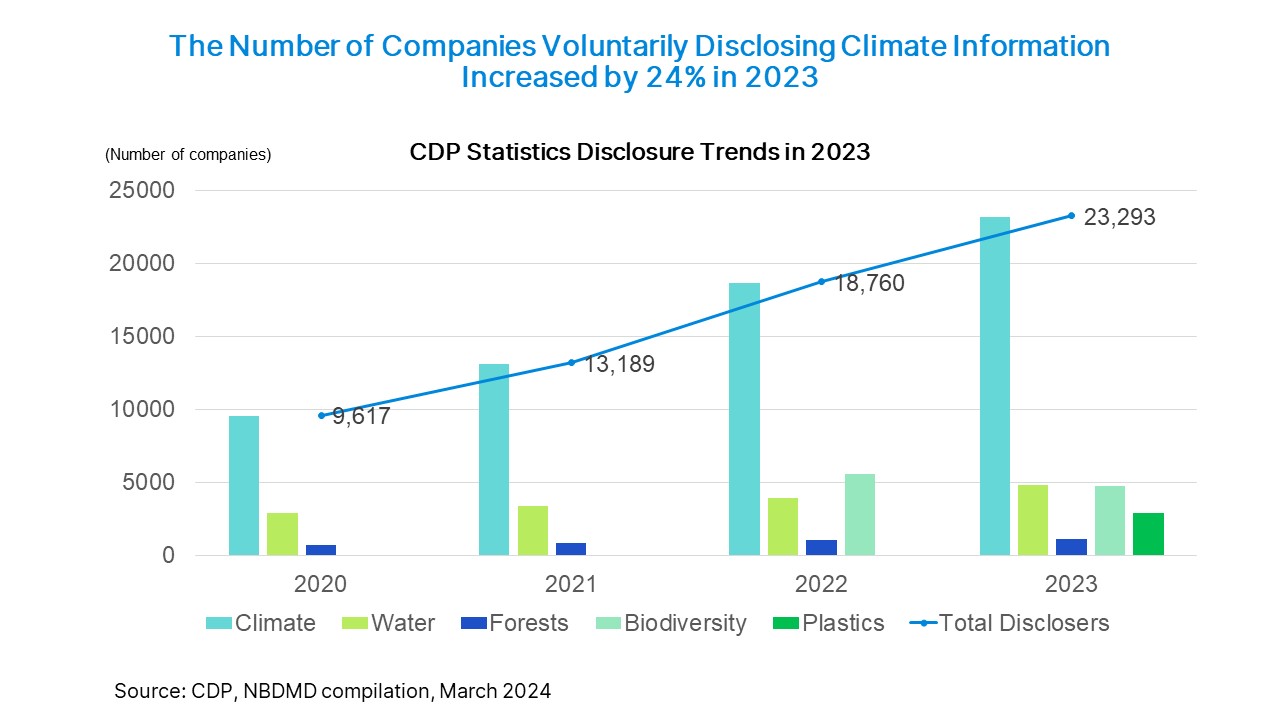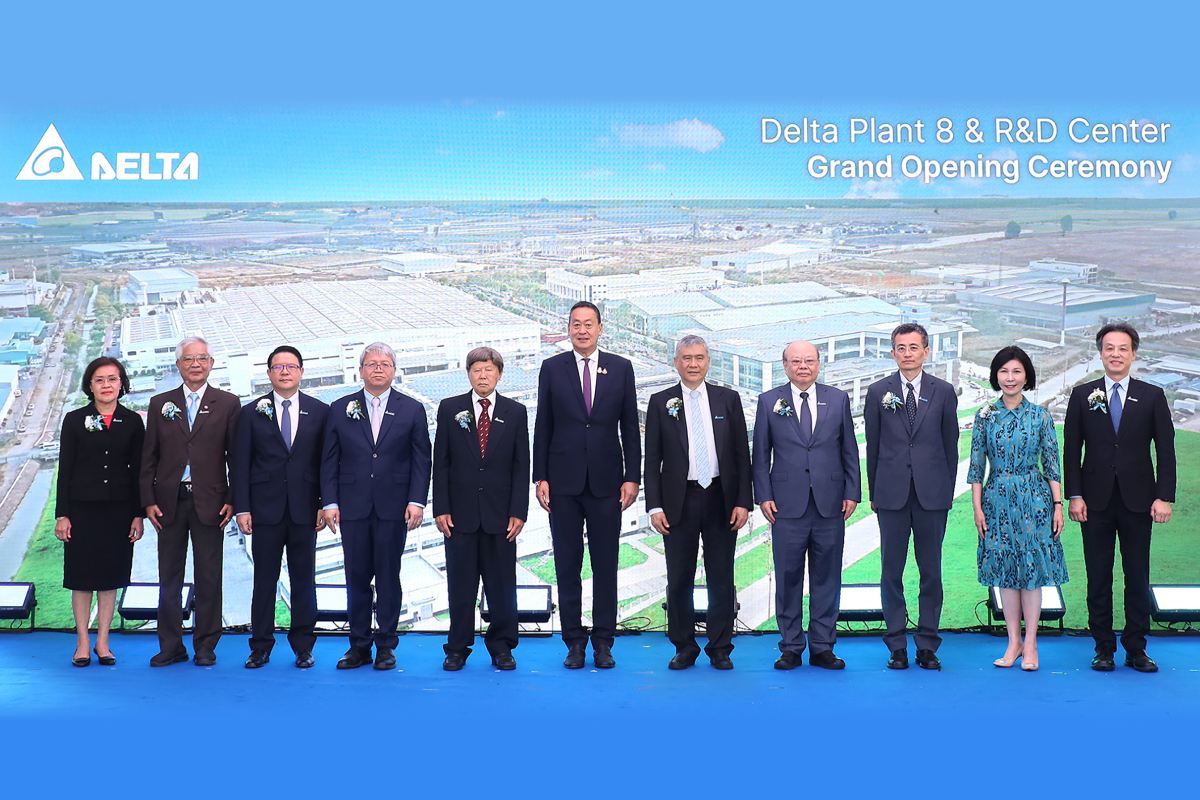In recent years, sustainable development has become an important business operations issue. Shareholders and regulatory authorities also expect companies to adhere to standard regulations, disclose their achievements and potential risks in sustainability. Started in 2003, Carbon Disclosure Project (CDP), a nonprofit organization, is dedicated to promoting climate information disclosure by businesses to prevent financial exposure risks caused by climate issues.
In November 2023, the latest CDP disclosure data factsheet revealed that there are 23,293 companies worldwide that disclose information on climate change, water security, and forest issues through CDP, accounting for two-thirds of the global capital market. Compared to the 18,760 companies in 2022, there has been a 24% increase. Compared to 2020, the number of companies participating in disclosure has increased by 142%, indicating the topic’s importance to businesses.
From the perspective of content breadth, an increasing number of companies are realizing that disclosing climate information alone is not enough. As of 2023, in addition to climate information, nearly 5,000 companies have also disclosed their water usage information, biodiversity information, and more. In addition, starting from 2023, CDP will include the plastic category for the first time. Nearly 3,000 companies have begun to respond by disclosing their plastic production and recycling practices.

Climate information solutions have become a focus of attention for businesses
With the disclosure of climate information emerging as a trend, there are increasingly more types of businesses engaging in climate information solutions. They can be broadly categorized into the following five types of businesses:
Startups: Representing companies like SINAI Technologies, which was one of the earliest entrants in this field, they are highly sensitive to changes in international standards. Their products can be quickly updated and adjusted in response to policy changes. However, whether the platform can meet the needs of large enterprises with multiple locations remains to be verified.
Consulting firms/entities: representing companies such as PWC and ITRI, they provide guidance to businesses in measurement carbon footprint, are familiar with international standards, and are knowledgeable about various issues that may arise during the verifying process. However, these platforms typically operate independently and cannot integrate with other platforms such as energy management. They would need to collaborate with system integrator.
Energy management companies: representing companies such as Siemens, they start from energy management and expand into carbon management, providing comprehensive energy-saving solutions for businesses. However, compared to other vendors, their platform fees are relatively high.
System integrators: representing providers such as SYSTEX Corporation, they specialize in software platform integration and may have already established a good working relationship with the company. However, system integrators do not have experience in ESG consulting and will need to collaborate with consultants to assist the company in implementation.
Cloud service providers: representing companies such as Microsoft, they have global experience and excellent platform scalability. Additionally, they also would need to collaborate with consulting firms to assist companies in conducting carbon measurement.
Real-time capability, user-friendliness, and scalability are the key factors for succeeding in future solutions
In a highly competitive market environment, finding differentiation and shaping advantages of products has become a major challenge for carbon accounting solution providers. According to the requirements of the IFRS sustainability disclosure standards, companies must disclose sustainability information within 75 days after the end of the fiscal year, along with the financial reports, making real-time data collection extremely important. In addition, the user-friendliness of the platform is also a key point. Once the consulting company has completed the implementation, the enterprise must be able to operate it independently, reducing reliance on consultants. To achieve more energy efficiency and carbon reduction, integration with energy management systems has become a key differentiator. By integrating energy management consulting and value-added services, we provide businesses with a one-stop shopping experience, which will be a crucial advantage for our future solutions to succeed in the market. With the disclosure of climate information emerging as a trend, there are increasingly more types of businesses engaging in climate information solutions.
With the disclosure of climate information emerging as a trend, there are increasingly more types of businesses engaging in climate information solutions.















